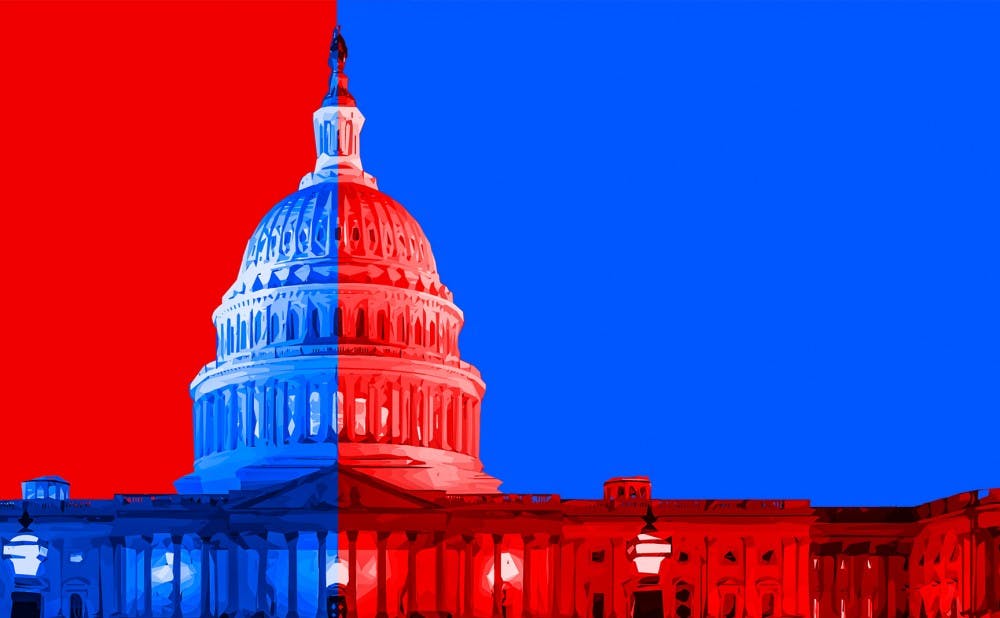Redistricting and the census are typically not in the same conversation, but census experts showed how the two go hand in hand at a conference Friday.
At the Reason, Reform and Redistricting Conference, experts from across the country discussed the fate of reapportionment at a panel called “Shaping the 2020 Census.” The event was sponsored by Duke's Center for Political Leadership, Innovation and Service in collaboration with the nonprofit organization Common Cause.
Every 10 years, the government is required by the Constitution to count the number of people living in the United States. Redistricting based on the 2020 census will occur in 2022 and determine how many members each state can have in the House of Representatives for the next decade.
However, certain groups in the population—such as immigrants—are harder to count than others.
“The effects of the census and the count are incredibly far reaching,” said Beth Lynk, census campaign director at the Leadership Conference. “Unfortunately, there are groups that are historically left out.”
For states with high numbers of hard-to-count groups, undercounting can lead to such states being underrepresented in Congress, resulting in minority groups not having a voice.
Lynk identified multiple hurdles for the upcoming census in accurately tallying such groups. Government appropriation for the 2020 census has been arriving late and at lower amounts, and this census will also be the first digital census, presenting problems in reaching rural communities that do not have digital access, Lynk explained.
There is also a fundamental distrust of the government, “which makes it that much harder for the government coming to these communities asking for information.” Lynk added that in a “growing age of misinformation,” there have been greater efforts to “undermine democracy.”
“That is something that we’re watching for the census,” she said. “It’s something that we’re watching closely.”
Most importantly, last year, the administration of President Donald Trump added a question about citizenship to the census. Lynk mentioned that a recent federal district court decision ruled the question unlawful by finding it to be in part a “smorgasbord of [American Psychological Association] violations,” and that officials “added this question in with a clear intent of something to hide.”
However, the decision has been appealed to the U.S. Supreme Court. Lynk noted that Congress has a role to oversee the census and can pass legislation to remove the question.
Vincent Barabba, former census director in the Nixon and Carter administrations, explained that if the citizenship question is upheld by the Supreme Court, the federal government must follow confidentiality law. The law states that “only sworn census employees can have access to the census records,” Barabba explained.
As a test run for the upcoming census, the U.S. Census Bureau operated a mock census in Rhode Island. John Marion, executive director of Common Cause in Rhode Island, described the trial as “the ghost of Christmas future,” as the Census Bureau “did not have a budget for outreach.”
“This is what the census would look like in a vacuum of information,” Marion said.
In response, Common Cause of Rhode Island sponsored an outreach program. Providence was selected because more than 60 percent of households are from immigrant communities, yet the Census Bureau did not provide any brochures to be distributed to Rhode Islanders.
As a result, Marion explained that people running the census trial had to print documents off the census website. Although those running the census were frustrated, Marion noted that it was Congress’ decision to underfund the test phase.
“Because there was no communication [from the Census Bureau], there are elected officials in Rhode Island who think that the census already happened,” Marion said.
Revealing the results of a survey about opinions on methods of filling out the census, Marion noted that Latinos preferred completing the census on paper compared to other groups. Marion explained that he feared this will lead to an undercount of Latino voters, which can impact the number of representatives in states with large Latino communities.
Tamieka Atkins, executive director of Pro Georgia, highlighted education, advocacy and funding in Georgia’s successful voter outreach program from past elections. She explained how the same tools can be used to increase the census count.
Through outreach efforts to 16 counties across Georgia that have a large number of hard-to-count groups, Atkins said that the organization is continuing to reach out to 1.3 million who have already signed a pledge to vote. She also noted how important it is to have “the right kind of staffing on the ground” to support their efforts.
“This is going to determine who represents you,” Atkins said when describing what staff would communicate in messaging efforts.
Lynk explained that the outreach in Georgia shows how vital community organizations can be when they act as a bridge to communities and encourage them to participate in the census.
“Please tell someone about the census after this because it is critical that we expand the network of engaged folks,” Lynk said.
Get The Chronicle straight to your inbox
Signup for our weekly newsletter. Cancel at any time.

Stefanie Pousoulides is The Chronicle's Investigations Editor. A senior from Akron, Ohio, Stefanie is double majoring in political science and international comparative studies and serves as a Senior Editor of The Muse Magazine, Duke's feminist magazine. She is also a former co-Editor-in-Chief of The Muse Magazine and a former reporting intern at PolitiFact in Washington, D.C.

